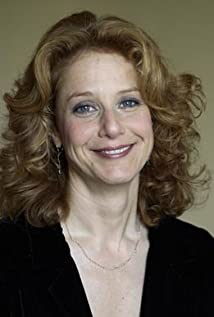Debra Winger
Mary Debra Winger was born May 16, 1955 in Cleveland, Ohio, to Ruth (Felder), an office manager, and Robert Jack Winger, a meat packer. She is from a Jewish family (originally from Austria-Hungary and the Russian Empire). Her maternal grandparents called her Mary, while her parents called her Debra (her father named her Debra after his favorite actress, Debra Paget). The family moved to California when Debra was five. She fell in love with acting in high school but kept it a secret from her family. She was a precocious teenager, having graduated high school at an early age of 15. She enrolled in college, majoring in criminology. She worked part-time in the local amusement park when she got thrown from a truck and suffered serious injuries and went temporarily blind for several months. She was in the hospital when she vowed to pursue her passion for acting.
After she recovered, she abandoned college and studied acting. Like any struggling actor, she did commercials and guest-starred on 70s TV shows like Police Woman: Task Force: Part I (1976) and Wonder Woman (1975), where she performed as Diana's little sister, Wonder Girl. She also made her feature film debut in the embarrassing soft-core porn film, Slumber Party '57 (1976). (Years later on Inside the Actors Studio (1994), host James Lipton asked her to name her first film, and she refused to answer him.) Her next two films, French Postcards (1979) and Thank God It's Friday (1978), did absolutely nothing for her career. When Sissy Spacek said no to playing the character Sissy in Urban Cowboy (1980), almost every young actress in Hollywood pursued the role. Debra won the role over a then-unknown Michelle Pfeiffer and gave a star-making performance as John Travolta's wife. Her handling of the mechanical bull made her a new kind of sex symbol. She would always remain grateful to her director James Bridges for threatening to quit the film if the studio didn't cast her. However, she followed it up with a flop, Cannery Row (1982). But, she became part of one of the top-grossing films of all time by providing her deep, throaty voice to the title character of E.T. the Extra-Terrestrial (1982) as a favor to the film's director Steven Spielberg (Note: IMDB cast list for E.T. indicates Pat Welsh as the voice for that character.). She also appeared in the film for a few seconds in the Halloween scene, where she is wearing a zombie mask and carrying a poodle. She received her first Academy Award nomination as Best Actress for the huge hit, An Officer and a Gentleman (1982), where her on-screen love scenes with Richard Gere became just as legendary as her off-screen fights with him and with director Taylor Hackford.
Debra's reputation as a great talent, as well as her reputation as a difficult actress grew with her next film, Terms of Endearment (1983), which not only earned her a second Oscar nomination as Best Actress but also won the Best Picture as well. She also earned the Best Actress Award from the National Society of Film Critics. Debra was at the top of her game and was the most sought-after actress in Hollywood, but she turned down quality roles and lucrative offers for three years. Some speculated that the reason was her romantic involvement with Bob Kerrey, then-governor of Nebraska, while others have stated it was her back problems. Whatever her reasons were, her career lost its heat. Her long-delayed film Mike's Murder (1984), reuniting her with her "Urban Cowboy" director James Bridges, didn't help matters either when it became a critical and financial flop. Debra tried to revive her career by starring in the big-budget comedy Legal Eagles (1986), but she disliked the film so much that she publicly stated that the director, Ivan Reitman, was one of the two worst directors she worked with, the other director being Taylor Hackford (An Officer and a Gentleman (1982)). She also walked out on her agency, CAA, but returned several years later.

